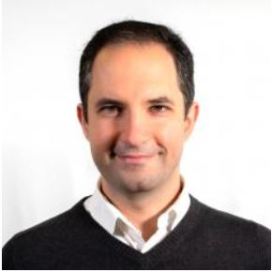!ازيك يا برنس
That’s read from right to left, pronounced “Ezayyak ya brinse“, and Sayyid’s way of greeting you to his coffee shop every evening. It was not a Starbucks, nor a Costa, and certainly not a French café. No fancy décor, no elevator music, no jazz. Oum Koulthoum was the staple as far as music was concerned. Fairuz could be heard as well. Abdel Halim Hafez also, from time to time. It was as real as it gets in this part of the world: Egyptian tenants, and clients from all over the Arab world: Egyptians obviously, but also Jordanians, Syrians, Palestinians, a few folks from Iraq, a couple of people from North Africa and some Lebanese…
Shisha, a.k.a hookah or arguileh, was common ground. Water pipe that is.
شيشة حامض و نعنع من فضلك

The rest depended on personal preferences: Koshari tea, ginger, coffee. Backgammon, Dominos. There was however a code for tobacco. The main choices boiled down to either Mouassal or Ajami. The latter consisted of finely chopped tobacco leaves with a couple of embers placed directly on them. Harder on the lungs supposedly, but definitely harder on the pocket, so most of the folks there would put back their ego where it should remain and take Mouassal, or fruit flavored tobacco. “Two apples” meant you were a newbie, a mistake to avoid at all cost. “Mint and Lemon” was a good compromise and most would smoke that, although a few posers would have more exotic flavors. It was a health disaster in all cases, with one alternative just being less expensive.
Most customers would come in around 9 or 10 PM and many would not leave before 2 AM. They probably had a lot on their minds and no one to share their dreams, their hopes, their fears. All they could do was drown their sorrows in the grey and white volutes of a mint-and-lemon-flavored shisha and make it last long enough to count.
Now would probably be a good time to give you more context. Abu Dhabi, 2009. The wave of the subprime crisis had already hit the shores of Dubai and drowned its swollen real estate market, driving most of its workforce to the neighboring emirate where work was still available. Most of Sayyid’s customers fell in that category. They had left Dubai some weeks or months ago looking for the next opportunity as you would put it on your linkedIn profile. Except these folks did not have one. Most were coming from God forsaken places, thriving to provide for families they had left back home, and many were in “professional transition”, which meant they needed to find a job, fast, or risk loosing their work permit. Their only escape from the vicissitudes of their lives was a daily dose of Sayyid’s coffee shop.
This part never gets told in the expatriate official tale. Expatriation is not always about living between the expat compound, the 5-star hotel, the platinum lounge and the Michelin star restaurant. It is sometimes less glamourous. Much less. It sometimes sounds like “immigration”. At least for the poor lads who need it most.
Let the board sound
Rabih

